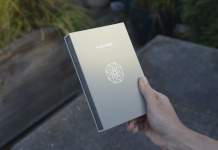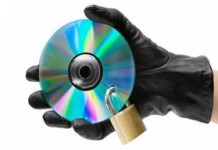
The Scholarly Kitchen has a well thought out article by Kent Anderson with this title today. I recommend reading the whole thing – he makes a lot of sense. Here is the beginning and the end:
While in many ways I celebrate the introduction of e-books — for instance, they don’t take up space after I’m done reading them, I can buy them whenever and wherever I like, they’ve allowed a new breed of authors to succeed, and they tend to be cheaper than paper books — there is something deep down that makes me sad about the decline of paper books.
…
So what is there to do? Nothing. The change is inevitable. And, just as we assigned nostalgia to cheap, discarded paperbacks in piles underneath failing bookstores, or to scratchy vinyl records we have to flip to listen through and that had us begging for the clarity and capacity of the CD, the affordances and special traits of e-books will somehow become charming to the next generation. They may remember reading a certain book on a certain device with fond memories, or where they were, or how they discovered the book on Facebook and who recommended it. New interactive formats will deliver a new aesthetic. The human mind will find new ways to embrace stories and how they’re told.
It will be different. It won’t be the same


































Okay, so… he had lots of books, and loves the feel and smell of them… where have I heard that before?…
I hate to say it, but it’s same-old same-old all over again. Another “I hate it when things change” article, lamenting the fact that they have to learn new ways to do the same old tricks, and that the aspects of printed books that he romanticizes about were something other than what they really were… the shortcomings and flaws of the old medium. This is a man who has closed his mind to the very idea of ebooks, who refuses to accept that it can do all the things a printed book can do, but so much more besides. He’s wearing his Ludditism on his sleeve: “Woe is me, I have to advance.”
In fact, I’m indifferent to all of that, and I suppose we’ll be hearing this sentimental wheeze for decades. However, I take umbrage with the suggestion that reading ebooks equates to “sensory deprivation.” Anderson compares the move from print to ebooks as akin to going from seeing live concerts to listening to records or swapping mix tapes.
Not even close. Ebooks are actually more powerful, more rich in experience, more flexible and more immediate than paper ever was. And with all that, ebooks offer reading in a more pure, distilled form, free of the distractions and limitations inherent with old paper. Ebooks are literature’s natural evolution, offering much more to the casual and serious reader alike, and anyone who denies this is blatantly ignoring the facts placed right before them.
I really miss the smell and feel of books written on scrolls of scraped animal hide. Call me a luddite.
@Steve — I agree with your last paragraph, but think you go too far with your opening.
Given a choice as to whether I would prefer to read the same book on my Sony 950 or in paper, in at least 9 of 10 instances I would choose the ebook form. (I think even you would admit that there currently are some books best served on paper; not many, but some.) I do not consider myself to be a Luddite in this regard.
Even so, I still buy pbooks in certain categories rather than ebooks — and that is the fault of the publishers to a large extent. I am not content to pay $30 for an ebook that limits my legal use, although I admit that I have done so on one occasion.
There are certain tactile and sensory happenings that ebooks simply cannot provide in the current form. More importantly, ebooks currently have certain economic failures, failures that make pbooks the better, more frugal choice for me as an individual. And if you haven’t read a nonanimated children’s book to a young child in both e and p forms to see the child’s reaction, then you have missed an opportunity to see which provides the better experience for the child.
FWIW, one of my complaints with ebooks is that publishers are “enhancing” them — and not necessarily for the betterment of the reading experience. One of the saddest things I have seen is an animated children’s book — it took away the exercise of imagination and the child became more interested in the animation than in the story. Not all progress is good or laudatory, just as not all “staying the same” is luddism.
I love my eReader and do 99% of my reading on it. I have a wall of packed bookshelves, but come evening, I’m reading an eBook, not a pBook.
That being said…one of my favorite books on my shelf is a Pocket Books edition of _Jeeves_ (P.G. Wodehouse). It was printed in April 1945, and has a page about how it’s a wartime book, and on the back, it says that it can be sent to “a boy in the armed forces anywhere in the U.S…only 4 cents postage.” I get a thrill, holding this cheap paperback (with beloved content) that was born within a few weeks of VE Day, and has been bopping around the planet for 66 years.
Granted, I’m so worried about damaging it that I read Wodehouse on my e-reader, or from another pBook in better shape. Maybe that means it’s lost its utility as a book, and it’s now just a “collectible.”
On a related note, I love movies. I watched Casablanca and Chaplin and Keaton for the first time in a repertory cinema, and am one of those who believe that something is lost when you don’t experience, for example, the final “Round up the usual suspects!” line for the first time in the midst of a packed audience. I’m delighted to be able to watch Casablanca on DVD, but I’m a bit sad that it’s probably the only way my kids will see it, on a small screen in a room by themselves or a few others.
Sometimes, there is something beyond content. I’m not entirely sure what “it” is. We can let it go and mourn its passing, but we shouldn’t ignore or deny it.
Shhh. Don’t disturb them. Let them grieve. We don’t have to convince them, because we’ve already won.
Steven – great comment.
One of the reason I love reading eBooks is the lack of distraction from pages sticking together, dropping it and losing my page, glaring white paper, stopping the pages flipping back … and on and on.
The eBook reading experience is much purer and allows me to lose myself in the world of imagination.
Sherri – you are SO right !
I think a couple readers may be missing some interesting observations in Mr. Anderson’s article. It is a celebration of books and memories. He is not saying that e-books are bad, just different and transitions are worth noting. We can savor and treasure the past. Parents often do this when they recall different moments in their children’s lives. We can enjoy the present and welcome the future but still reflect on the joy the past has given us in its many forms.
Fans of the old fashioned paper book frequently mention their love of its “feel and smell”. This euphemism plays to the embodied nature of the physical book; how it is manually navigated and physically inter-shelved in libraries. E-book fans, on the other hand, play to the nature of screen display. They always mention the importance of a “good story” or the pure content of a book. They wish books to flow freely between devices and even wish books to be free of cost. Screen reading advocates situate the book in a disembodied state.
What can be made of a contrast between an embodied and disembodied book? In context of Western medieval society we encounter the enigma of “the Word made flesh” evoking two innovations of concept and medium as the exemplar codex becomes a manifestation of God. This transubstantiation is evoked by the Lindisfarne Gospels described as a physical door or portal to prayer.(1.) Such scripture was more used than read. Actions of medieval book making also convey from manual craft to miraculous event and such transcendent quality is anchored in a metabolic book. This anchored book persists through medieval times evolving from liturgical roles to a personal possession. (2.)
Screen displayed books, common today, achieve separation from physical embodiment. That escape was already underway with the advent of the disposable paper book but it has now extended to the immateriality of libraries in the cloud. Even the semblance of personal possession as epitomized by cell phones or hand-held readers is deceptive; we replace them without a pause. The book has been revamped to be delivered in the mirror of a fulfillment device. Any longing for a more embodied e-book only addicts the reader to an endless series of simulations.
Certainly a larger appreciation of the book is needed. All of us can be amazed that a surviving Medieval text will continue to engage all curiosities, confirming either the resolution or overt irrelevance of our questions. This physical artifact is somehow self-authenticating. Similarly, we can be pleased that digital technologies of screen access and screen discovery of books, so crucial to scholarship, have emerged to assisted learning and enjoyment of reading. These self-indexing search routines of the screen are a perfect counterpart to the self-authenticating print. An excellent interdependence of print and screen is in the making.(3.)
So it must be disconcerting when screen reading advocates project the “death” of the physical book. They offer a tirade of death to the paper book, death to print publishers and death to long form reading. This appears as a hubris of immortality projected onto the most ephemeral medium. Was the practical paradox of transmission of conceptual works via physical objects once better understood in the Medieval era than it is now.(4.)
References
(1.) Brown, Michell P., The Lindisfarne Gospels, 2003.
(2.) Jager, Eric, The Book of the Heart, 2000.
(3.) Deegan, Marilyn and Sutherland, Kathryn, Transferred Illusions, Digital Technology and the Forms of Print, 2009.
(4.) Myrvold, Kristina, ed., The Death of Sacred Texts, 2010.
There is a lot we can do to make eBooks and eBook libraries less sterile:
(from http://td.typepad.com/treeweaselweekly/2011/05/wake-up-and-smell-the-ebook.html)
Virtual goods are not the same as their physical counterpart (obviously), and quite often are inferior in terms of an overall aesthetic package. Nobody who remembers LPs would compare the lavish artwork, sleeve notes and booklets many LPs contained with the anonymity of a MP3 “album”, which is often missing even the most basic accompanying material. eBooks are treated even worse, covers are often missing, they are formless, and of course they don’t smell right! But it doesn’t have to be like this.
What could we do to make ownership of digital material more tangible? The video game, Disgaea, has an interesting approach to in game items. Instead of a small list of generic stuff that you can buy or loot, every single item is unique. They even have creatures living in them (again unique) that you can quell or tame but that is getting even further off the track. Why am I even talking of this? Well, there is no reason that each eBook shouldn’t be unique as well. Of course the content of the eBook needs to be consistent, but what about a layer of meta-data that records unique information about the book? One of the nice things about most eBook formats is that the format itself already supports this type of information and the reading software can choose to ignore or act upon it as it sees fit.
What could be recorded in this meta-data? The user’s name and other simple items spring to mind as the most basic. Support for author signings/messages/personalised bookplates? This is not DRM by the way, just information to make the eBook more individual. Straightforward enough. But what about a meta-data layer defining decay? I used to be able to tell when my brother had read my books because the edges of the pages turned black! He worked in a machine shop and read during his breaks with oily fingers. Every time we read a paper book, it wears out slightly, pages fray, finger marks appear and so on. Completely pointless, but we could add similar aspects to eBooks so that they “suffer” some of the stresses of use, and this decay could be recorded in the ebook and displayed in the reader.
Of course all of these depend on the reading software to interpret and record the meta data in a meaningful way. And since eBooks don’t really have pages as such, perhaps not a workable idea. But many readers let users annotate and mark up books, so there is already support (of sorts) for making a book unique.
One other area that is ripe for exploitation is the library management on your reading device. I have an iPad, and it, and other tablets, are no slouches when it comes to pushing pixels around. So why do we have flat shelves with 2D “books” lined up in rigid lines? Lets go to town here. Have a 3D (or even 2.5D) representation of a book, so that it resembles its physical counterpart, with varying height and thickness. Why not a 3D library environment with shelves, ladders, dust, cobwebs, and orang-utans. OK, maybe not orang-utans. I am not suggesting we licence the Unreal engine and produce an amazing 3D library (though that would be kind of neat) but simply something that emphasised the differences each book has, and gave us different ways to arrange and manipulate our library. Total gloss and frippery perhaps, but as a virtual collection grows, it is nice to be able to visualise and interact with it in different ways. There are several apps that attempt to do this with music, including Planetary, which represents your music collection as a solar system. Daft? Yes, but shows a bit of thinking beyond the rigid lists and collections that make up the building blocks of a software developers normal toolkit. Another app, Albums, shows your music as CD covers and lets you pile them up on a virtual table and shuffle them around.
Anyway – enough of me. Just a bit of a rambling discourse on making ebooks decay, wear out, and look individual. But not smell. You can’t do that with meta-data or the Unreal engine. Yet.
I don’t think I need (or want) my ebooks to ‘decay.’ But I would like more ways to interact with them. The Kobo is on its second iteration and it *still* has not got support for folders or collections. It’s just such small thinking.
However, lately, the number of ebooks I have seen with obvious errors in them has sharply climbed. So, my feeling on ‘frills’ is ‘let’s fix the basics first and then we can worry about those.’
@Rich’s “I think even you would admit that there currently are some books best served on paper; not many, but some.”
Actually, the only book that I think is better on paper is a pop-up book. There is no book in my collection that I wouldn’t rather have in digital form, nor any book I can contemplate buying that I wouldn’t rather have digitally.
No, ebooks don’t have paper’s sensory aspects; they have their own sensory aspects. There’s nothing so wonderful about paper’s sensory aspects that I consider superior to ebooks’ sensory aspects… and I reiterate, all of them are absolutely secondary to the real point, the content.
@Gary: What you describe as “disembodied,” I describe as “unencumbered.” Digital documents are not locked into a fragile vegetable medium, unalterable and inflexible. They are pure and distilled, therefore open to satisfy the presentation needs of the user… not the limited presentation options forced upon them by the publisher.
@Christo: Sounds like you want to embody digital documents with all the baggage of printed documents. Why bother? Digital documents won’t be improved by pretending they are paper. They are what they are, they have worth that is not enhanced by simulating something else.
I have in my pocket a cellphone. I can use it to make telephone calls… as well as send and receive emails and texts, store contacts and addresses, edit documents, summon maps of my destination, scan QR codes, check my appointments, surf the web, view videos and photos, etc, etc. It would not gain any value by redesigning it to look like a 1950s phone handset, nor giving it a dialing rotor. And because of the things it can do, it surpasses the phone on the table, wired into the local switchboard, by leagues.
Printed books are simply that: A book with ink characters on its pages. Most of the ancient books we lionize, we do simply because they are ancient… look, they have survived the centuries. But what is inside them is duplicated on many other, newer tomes, making the ancient book valuable only because it exists, physically… not because of the content it relates. The value is in old paper and glue, nothing more.
I have absolutely no interest in old paper. I have interest in the words, the content; the delivery mechanism matters not at all. Given the choice, I would rather enjoy a story without the knowledge that I sacrificed a few trees, tore up a forest and polluted my planet with chemicals and CO2 fumes in the process.
@Steve
Perhaps the decay was a step too far – it was more the idea of a layer of individuality for a book, whether for author “sigining”, or doodles in the margin! I have been reading ebooks on PDAs, smartphones and now iPad for almost 10 years and don’t hanker for paper one bit. There is still massive room for improvement in the presentation of the content on those devices, typography is basic at best. But that is a a whole subject in its own right.
@ Steven
Extreme screen readers are only focused on content. A more balanced approach is wider reading, both print and screen display. Textbooks, for example, work better in print, both from the study and classroom perspectives. Physical library arrangement also induces leaning and reflection. Print encumbers screen very effectively. Watch students work at a university library.
“Print encumbers screen very effectively.” I disagree completely. Print encumbers books; once it’s on paper, it can’t be moved or changed.
Screens can offer up text in various sizes, formats and colors, whatever suits the reader best. Then they can move the text aside and offer up images and videos, then connect to the web for more information. I call that unencumbered.
I maintain that the only important aspect of documents is content. The rest is superficial, incidental and ultimately unimportant.
(By the way: I edited this post. You can’t even tell. Do that on paper.)